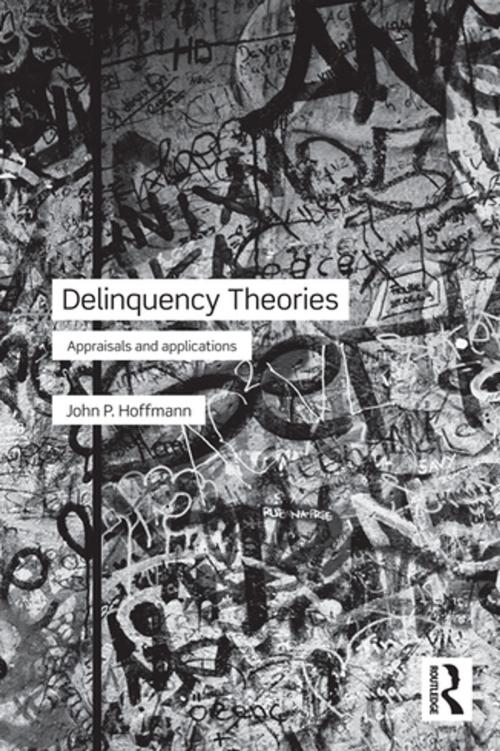Delinquency Theories
Appraisals and applications
Nonfiction, Reference & Language, Law, Criminal law, Social & Cultural Studies, Social Science, Crimes & Criminals, Criminology, Sociology| Author: | John P. Hoffmann | ISBN: | 9781136855382 |
| Publisher: | Taylor and Francis | Publication: | April 1, 2011 |
| Imprint: | Routledge | Language: | English |
| Author: | John P. Hoffmann |
| ISBN: | 9781136855382 |
| Publisher: | Taylor and Francis |
| Publication: | April 1, 2011 |
| Imprint: | Routledge |
| Language: | English |
Delinquency Theories: Appraisals and applications provides a fulsome and accessible overview of contemporary theories of juvenile delinquency.
The book opens with a comprehensive description of what a theory is, and explains how theories are created in the social sciences. Following on, each subsequent chapter is dedicated to describing an individual theory, broken down and illustrated within four distinct sections. Initially, each chapter tells the tale of a delinquent youth, and from this example a thorough review of the particular theory and related research can be undertaken to explain the youth’s delinquent behaviour. The third and fourth sections of each chapter critically analyze the theories, and provide a straightforward discussion of policy implications of each, thus encouraging readers to evaluate the usefulness of these theories and also to consider the relationship between theory and policy.
This text is an invaluable resource for both undergraduate and graduate students of subjects such as youth justice, delinquency, social theory, and criminology.
Delinquency Theories: Appraisals and applications provides a fulsome and accessible overview of contemporary theories of juvenile delinquency.
The book opens with a comprehensive description of what a theory is, and explains how theories are created in the social sciences. Following on, each subsequent chapter is dedicated to describing an individual theory, broken down and illustrated within four distinct sections. Initially, each chapter tells the tale of a delinquent youth, and from this example a thorough review of the particular theory and related research can be undertaken to explain the youth’s delinquent behaviour. The third and fourth sections of each chapter critically analyze the theories, and provide a straightforward discussion of policy implications of each, thus encouraging readers to evaluate the usefulness of these theories and also to consider the relationship between theory and policy.
This text is an invaluable resource for both undergraduate and graduate students of subjects such as youth justice, delinquency, social theory, and criminology.















